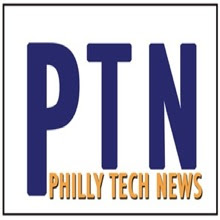"Entrepreneur Summer Camp" to kick off events with look back at Infonautics and what grew from it
Tom Paine
Life can be slow in the summer if you're in the city and looking for interesting tech events. Two business incubators/accelarators, though, Novotorium of Bucks County and Seed Philly of Philadelphia, are joining together to present Entrepreneur Summer Camp, consisting of a moderately priced series of weekly events featuring topics of interest to area entrepreneurs, plus the opportunity to opt into additional programs and
services the incubators offer.
The first event, to be held on the morning of June 12 at The University Science Center's Quorum, features a retrospective look back at Wayne-based Internet startup Infonautics, the people who came out of it, and the impact the resulting ecosystem has had in growing the Philly Tech community. Infonautics was co-founded in 1992 by Josh Kopelman, then a sophmore at Wharton, along with founder Marvin Weinberger, an entrepreneur who had previously co-founded Telebase Systems Inc., an online media company in Wayne. Weinberger was CEO and Kopelman was Executive VP with responsibility for sales & marketing. One of Infonautics' early investors and advisors was Howard Morgan, the former computer science professor at Penn turned VC who later co-founded First Round Capital with Kopelman and is a managing partner of the firm today.
Infonautics set out to become an online resource for children, providing curated content that helped young students learn and study. Its products included Homework Helper, delivered primarily via early online service Prodigy, and Electric Library, delivered via the Web. Infonautics did an IPO on the NASDAQ in April 1996 and raised close to $30 million, an offering that would be difficult for such a small early stage company to pull off today.
The company had difficulty selling a subscription-based service to a mass market, particularly as so much information was beginning to appear for free on the Web. In terms of technology, Infonautics also had to scramble to convert from the closed garden world of legacy online services such as Prodigy to the open Web, which really took off in the 1994-95 period. That transition, Novotorium GM Mike Krupit (who served as Infonautics' Director of Technology ) told me in a phone interview, spurred a period of tremendous innovation at the company. For example, Infonautics pioneered an early business model and developed related technology for managing affiliate marketing programs. And at a later stage of the company's history, in an effort to pivot, it developed an online service called "Company Sleuth", which I remember using. Company Sleuth allowed you to track several sources of records and information about a company that at the time were difficult to put together from one single email signup. And since the web was like a frontier then, with only slightly defined and rapidly evolving standards, Infonautics' staff was constantly looking for fixes or new ways of doing things.
Founder Weinberger, who Krupit described as a visionary, was a somewhat unorthodox businessman with penchant for dressing informally for meetings (not as common then as now), usually wearing an Infonautics baseball cap.
Infonautics posted 1996 results of $1.4 million in revenue and an operating loss of nearly $14 million. Its stock, which opened at $14, went down 19% during its first week of trading and was down to $2.38 by early 1997. The company was able to grow revenue to $23 million by 1999, but continued to have large operating losses. At the time, the technology infrastructure needed to run an online Internet service required significant fixed costs that were difficult to scale down. Employment at one point exceeded 130; a company 10-K indicated it reached about 80,000 paid subscriptions.
Josh Kopelman left Infonautics to start Half.com in mid-1999. Weinberger left in 1998 and started other ventures, some that worked and some that didn't. Also in that year, Infonautics began to sell parts of the company, selling its Education products group to Bell & Howell, gaining net proceeds of $18.5 million, and also ending up with a 20 % stake in bigchalk.com, the rest of which was owned by Bell & Howell. Infonautics intended to focus its resources on its Company Sleuth offering and other targeted personal information tools marketed under the Sleuth brand. The pivot to Slueth did not pay off financially fast enough, and in 2001 Infonautics merged with Tucows Inc., with the combined firm taking on the Tucows name. Toronto-based Tucows, which still exists today, specializes in domain registration and other Internet services.
Other pieces of Infonautics' product and IP portfolio ended up in different places; for instance, patent firm BTG acquired a portion of the patent assets of Infonautics covering navigational tracking on the Web and online affiliate programs. In fact, in 2004 BTG sued Amazon.com, BarnesandNoble.com, Netflix and Overstock.com over their alleged infringement of the patented Infonautics technologies. BTG apparently reached settlements with each of the four, with Netflix agreeing to pay an undisclosed sum (said to be millions of dollars in one report) in return for a non-exclusive license. BTG subsequently sold the web patents in 2006 for $5 million plus profit sharing, as it decided to focus on Life Sciences.
The event on the 12th, titled "After Infonautics: A Generation of Startups", will feature a panel of former Infonautics execs and employees discussing how their experiences there led to a number of other startups in the Philly area. Participants scheduled to appear include Kopelman, Weinberger, Lucinda Duncalfe (who went on to Destiny, TurnTide, Click Equations, and now Real Food Work), Krupit (who ended up running CDNow after Bertelsmann acquired it, and now runs Novotorium), Rick Mosenkis (VerticalNet, WorkZone), Ram Mohan (Afilias CTO and a member of ICANN's board of directors), Andrea Michalek (1800CTO, Topular, and a new startup, Plum Analytics), and Ed Watkeys (Half.com, Transmogrify, ActionX).
You can register for the event here. Additional Entrepreneur Summer Camp events will run through July 27.
permalink



